Hyundai Kona vs Mercedes EQB - Differences and prices compared
Compare performance (218 HP vs 292 HP), boot space and price (23100 £ vs 45900 £ ) at a glance. Find out which car is the better choice for you – Hyundai Kona or Mercedes EQB?
Costs and Efficiency:
When it comes to price and running costs, the biggest differences usually appear. This is often where you see which car fits your budget better in the long run.
Hyundai Kona has a significantly advantage in terms of price – it starts at 23100 £ , while the Mercedes EQB costs 45900 £ . That’s a price difference of around 22812 £.
In terms of energy consumption, the advantage goes to the Hyundai Kona: with 14.60 kWh per 100 km, it’s minimal more efficient than the Mercedes EQB with 15.20 kWh. That’s a difference of about 0.60 kWh.
As for electric range, the Mercedes EQB performs barely noticeable better – achieving up to 535 km, about 21 km more than the Hyundai Kona.
Engine and Performance:
Power, torque and acceleration say a lot about how a car feels on the road. This is where you see which model delivers more driving dynamics.
When it comes to engine power, the Mercedes EQB has a evident edge – offering 292 HP compared to 218 HP. That’s roughly 74 HP more horsepower.
In acceleration from 0 to 100 km/h, the Mercedes EQB is noticeable quicker – completing the sprint in 6.20 s, while the Hyundai Kona takes 7.80 s. That’s about 1.60 s faster.
In terms of top speed, the Hyundai Kona performs evident better – reaching 210 km/h, while the Mercedes EQB tops out at 160 km/h. The difference is around 50 km/h.
There’s also a difference in torque: Mercedes EQB pulls clearly stronger with 520 Nm compared to 265 Nm. That’s about 255 Nm difference.
Space and Everyday Use:
Beyond pure performance, interior space and usability matter most in daily life. This is where you see which car is more practical and versatile.
Both vehicles offer seating for 5 people.
In curb weight, Hyundai Kona is clearly lighter – 1370 kg compared to 2105 kg. The difference is around 735 kg.
In terms of boot space, the Mercedes EQB offers barely noticeable more room – 495 L compared to 466 L. That’s a difference of about 29 L.
In maximum load capacity, the Mercedes EQB performs distinct better – up to 1710 L, which is about 410 L more than the Hyundai Kona.
When it comes to payload, Hyundai Kona slightly takes the win – 490 kg compared to 435 kg. That’s a difference of about 55 kg.
Who wins the race in the data check?
The Hyundai Kona has the upper hand in the objective data comparison.
This result only shows which model scores more points on paper – not which of the two cars feels right for you.
Costs and Consumption
View detailed analysis
Engine and Performance
View detailed analysis
Dimensions and Body
View detailed analysis

Hyundai Kona
Hyundai Kona
The Hyundai Kona wears its personality on the outside with bold styling and sprightly handling that turns city driving into something a little more fun than a commute. It blends practical space, modern tech and sensible running costs into a compact, stylish package — a smart pick if you want flair without paying luxury prices.
details



Mercedes EQB
The Mercedes EQB is an electric compact SUV that dresses Mercedes' premium feel in practical clothing, with flexible seating and a serene, composed ride that turns everyday errands into a small luxury. It won't thrill the enthusiast, but for buyers who want a smart, spacious and well-made EV with tasteful tech and real-world usability, the EQB is a sensible, slightly buttoned-up choice that impresses without shouting.
details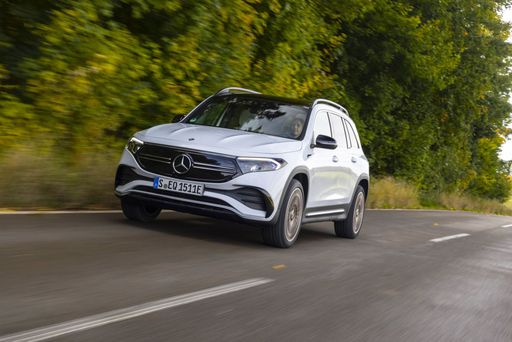
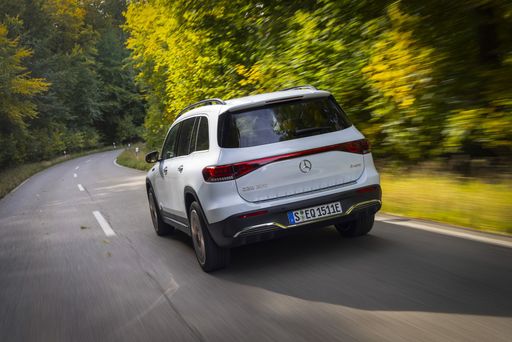
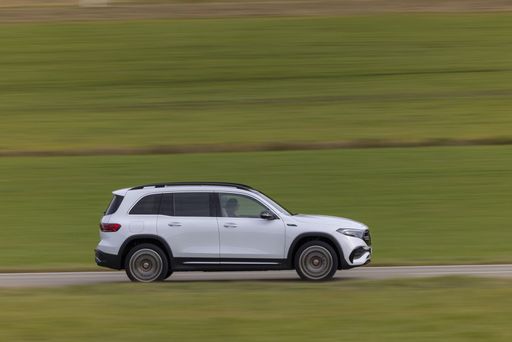
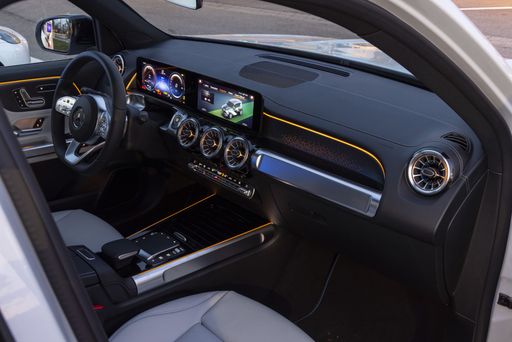
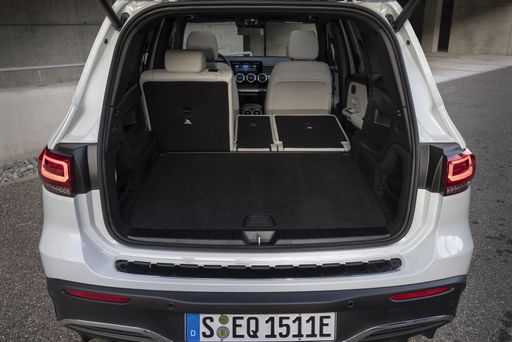
Costs and Consumption |
|
|---|---|
|
Price
23100 - 41600 £
|
Price
45900 - 58900 £
|
|
Consumption L/100km
4.6 - 7 L
|
Consumption L/100km
-
|
|
Consumption kWh/100km
14.6 - 16.8 kWh
|
Consumption kWh/100km
15.2 - 17.2 kWh
|
|
Electric Range
377 - 514 km
|
Electric Range
468 - 535 km
|
|
Battery Capacity
1.3 - 65.4 kWh
|
Battery Capacity
70.50 kWh
|
|
co2
0 - 163 g/km
|
co2
0 g/km
|
|
Fuel tank capacity
38 - 47 L
|
Fuel tank capacity
-
|
Dimensions and Body |
|
|---|---|
|
Body Type
SUV
|
Body Type
SUV
|
|
Seats
5
|
Seats
5
|
|
Doors
5
|
Doors
5
|
|
Curb weight
1370 - 1773 kg
|
Curb weight
2105 - 2170 kg
|
|
Trunk capacity
466 L
|
Trunk capacity
495 L
|
|
Length
4350 - 4385 mm
|
Length
4684 mm
|
|
Width
1825 mm
|
Width
1834 mm
|
|
Height
1580 - 1585 mm
|
Height
1654 - 1689 mm
|
|
Max trunk capacity
1300 L
|
Max trunk capacity
1710 L
|
|
Payload
420 - 490 kg
|
Payload
435 kg
|
Engine and Performance |
|
|---|---|
|
Engine Type
Electric, Petrol, Full Hybrid
|
Engine Type
Electric
|
|
Transmission
Automatic, Manuel
|
Transmission
Automatic
|
|
Transmission Detail
Reduction Gearbox, Manual Gearbox, Dual-Clutch Automatic
|
Transmission Detail
Reduction Gearbox
|
|
Drive Type
Front-Wheel Drive, All-Wheel Drive
|
Drive Type
Front-Wheel Drive, All-Wheel Drive
|
|
Power HP
115 - 218 HP
|
Power HP
190 - 292 HP
|
|
Acceleration 0-100km/h
7.8 - 11.9 s
|
Acceleration 0-100km/h
6.2 - 8.9 s
|
|
Max Speed
162 - 210 km/h
|
Max Speed
160 km/h
|
|
Torque
200 - 265 Nm
|
Torque
385 - 520 Nm
|
|
Number of Cylinders
3 - 4
|
Number of Cylinders
-
|
|
Power kW
85 - 160 kW
|
Power kW
140 - 215 kW
|
|
Engine capacity
998 - 1598 cm3
|
Engine capacity
-
|
General |
|
|---|---|
|
Model Year
2024 - 2025
|
Model Year
2024 - 2025
|
|
CO2 Efficiency Class
A, D, C, E, F
|
CO2 Efficiency Class
A
|
|
Brand
Hyundai
|
Brand
Mercedes-Benz
|
Is the Hyundai Kona offered with different drivetrains?
Available configurations include Front-Wheel Drive or All-Wheel Drive.
